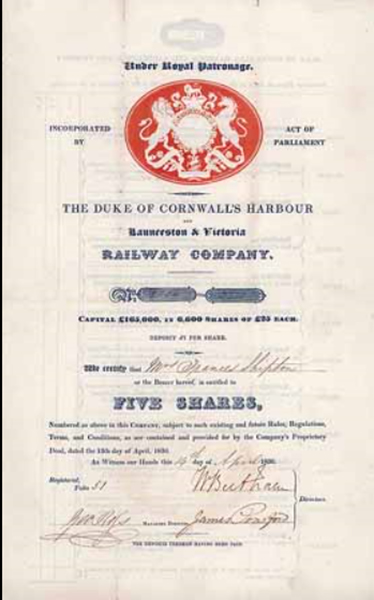.
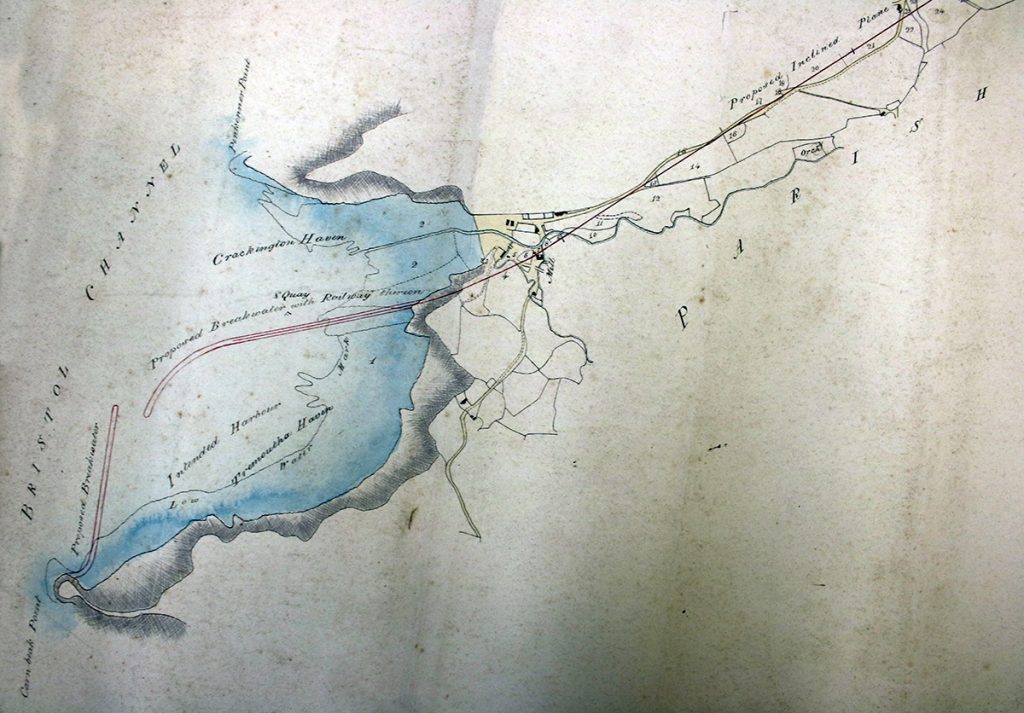
Originally called the Duke of Cornwall’s harbour and Launceston and Victoria railway, the 1836 scheme to connect Launceston to a new harbour at Tremoutha in the St. Gennys parish (Crackington Haven) was the first railway to be proposed for the ancient capital of Cornwall. Coming shortly after the closing of the Cornwall assizes at Launceston, it was seen as a way to boost trade for the town. Amongst the scheme’s promoters were Launceston townsmen Richard Penwarden and Thomas Pearse. The Tremoutha railway and harbour bill was first presented to parliament on February 19th, 1836. In April 1836 and possibly to ward of a rival Padstow to Plymouth scheme, further plans were made proposing to extend the line all the way to Plymouth and shares were offered for this extension.
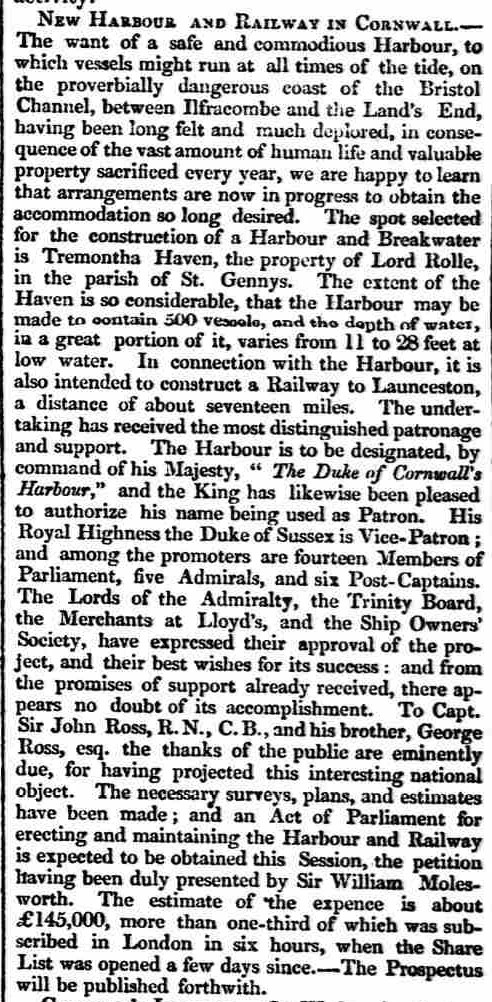

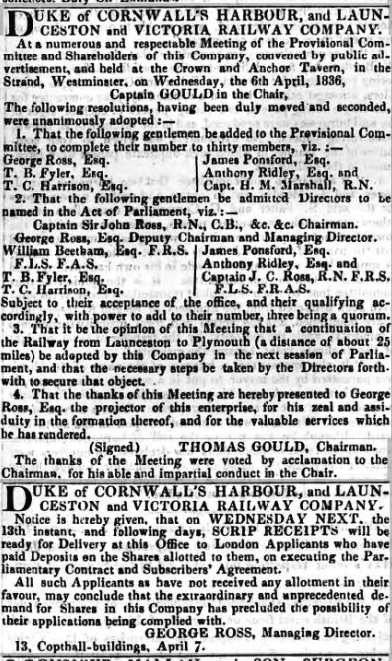
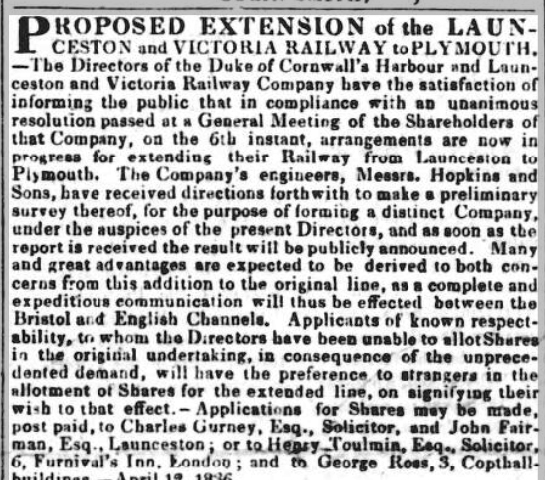


Taken from the ‘Railway Register’ of 1846:
‘The want of a safe and commodious harbour to which vessels might run at all times of the tide on the dangerous coast of the Bristol Channel between Ilfracombe and the Land’s End has long been severely felt and deeply deplored The number of lives and amount of property lost every year for want of such an accommodation is so great that from official returns which have been obtained it appears that no less than twenty three vessels were wrecked in one year and in most of them all the crews perished The causes of such great destruction of lives and property by shipwreck on the north west coast of Devon and Cornwall have been thus well expressed in a memorial some time ago laid on the table of the House of Commons Ships coming from the Atlantic in thick weather outward bound vessels from Bristol Liverpool and Glasgow coasters going round the Land’s End from the English Channel into the St George’s and the Bristol Channels and coasters going from the St George’s and the Bristol Channels to ports in the English Channel often meet with strong westerly gales and a heavy sea which so commonly prevail in the winter season caught within the headlands in vain they endeavour to beat off as it is impossible for them to weather the land in either direction; and for want of a port of safety to run to they eventually become a wreck upon coast and in many cases all hands perish whereas if a pier or breakwater had been formed they would have had a place of safety to run and thereby have saved themselves their ships and cargoes quantities of wreck are found upon this coast almost every winter clearly proves that many vessels founder or are dashed to pieces detached rocks in trying to keep off this dangerous shore for want a place of safety to run to.
The loss of his Majesty’s ship Weazle when all hands perished is a melancholy instance also of the necessity of a safe harbour our upon this coast. In the same year it that twenty four fishing boats were also lost with the sacrifice of thirty one lives leaving twenty widows and sixty one children destitute dependent on charity and within a short period not fewer thirty two vessels have been wrecked in Bideford Bay alone namely one East Indiaman four West Indiamen seven trading vessels various foreign parts and twenty coasters and Irish traders of eleven vessels had all hands lost and others a great part of their crews which is exclusive of six wrecks on the island of Lundy where only one of the crews were saved besides which numerous shipwrecks have occurred almost every year on other parts of the dangerous coast between Ilfracombe and the Land’s End It has therefore been long an important question with the philanthropist and merchant what are the best means that can be devised to prevent such great sacrifices of human life and valuable property Various plans have with this view been at different times suggested for the construction of a breakwater and harbour but upon examination of the coast it appears that no place is so favourably situated or affords so many advantages as Tremoutha Haven in the parish of St Gennys. The extent of this haven is so considerable that a harbour may be made capable of containing more than 500 vessels of the average class usually frequenting the Bristol Channel Here there will also be good anchorage as there are but few rocks below low water mark and these are so near the shore as easily to be excavated The depth of water at low water is unusually great as compared with other inlets in the Bristol Channel and varies in different parts from 11 to 28 feet so that vessels of large burthen and even ships of war may ride at anchor at all times of the tide whilst there is now no port on that coast where vessels can enter at less than half flood The haven being situated on the north of Carnbeak Point is thereby well sheltered from the south and south west On the opposite side is Penkenner Point so that the only direction in which the haven is now exposed is from the west and north west To afford complete shelter and form a commodious and safe harbour it is proposed to construct two breakwaters as represented in the accompanying plan one of which will be also adapted as a quay with convenient warehouses The extent of surface proposed to be enclosed is 24 acres at low water and 42 acres at high water in 12 acres of which there is a depth of more than 11 feet gradually increasing to 28 feet at low water and the rise of tide at high spring tides is nearly 30 feet Peculiar facilities are afforded for the construction of breakwaters the space between high and low water mark being covered with rocks and loose stones of great size many of them being from eight to ten tons weight which are well calculated for the purpose.
The position of Tremoutha Haven in the Bristol Channel is exceedingly favourable it being nearly equidistant from Bristol the Land’s End The spot has been examined by several nautical scientific men who have spoken of it in high terms of commendation. The opinion of Captain Sir John Ross RNCB the justly northern navigator is entitled to peculiar weight. In a letter to the secretary of the committee he says it affords me satisfaction to give my willing and unqualified testimony of the and great advantages which commerce and navigation will reap from the projected harbour at Tremoutha and I can certify from experience that there is no part of the coast of England so much in want a harbour of refuge as that which lies between the Land’s End and Ilfracombe nor could a better situation be found on that coast that of Tremoutha and having examined the charts and the report I have no doubt but that an excellent harbour may be constructed there at a moderate expense and that it would be beneficial to the navigation of those seas but particularly to the trade Bristol and Liverpool. The plan of the harbour has also been submitted to Captain Clark Ross RN FRS who has kindly favoured the projector with his advice in its formation and in a letter to the secretary on the subject observes that he considers it will if constructed as now proposed form one of the finest and most capacious artificial harbours in the world adding I shall most willingly do anything that lies in my power to promote an undertaking which has for its objects the preservation of human life and the most important national and commercial advantages. The Rev Mr Scoresby FRS no less distinguished as a navigator than for his scientific acquirements has also favoured the secretary with his opinion in saying That a harbour in such a position would be a valuable acquisition both in a commercial and philanthropic view there can be no doubt and that a harbour can be obtained there at a comparatively moderate expense seems unquestionable from the reports you have received The large proportion outlay in such national works being spent in the form of wages is always a benefit directly to the labouring public and indirectly to those to whom the necessitous labourer looks for help and support whilst the increase of intercourse with the localities by means of new objects and increased facilities of access to the places around has a tendency to promote an advance in local property and a benefit generally to the local population and Captain Manby FRS well known for his philanthropic pursuits and ingenious inventions for the preservation human life in a letter received from him in allusion to the harbour remarks I will offer you my decided approbation of such an undertaking and my best wishes for its success feeling as I do that nothing tends so much to lessen the calamity of shipwreck as that of a certain harbour of refuge especially on a coast so proverbially notorious as that of Cornwall for its fatal and distressing consequences That an undertaking calculated to remedy such dreadful calamities and destructive occurrences will meet with universal approbation and adequate support cannot therefore be doubted and whether viewed as a great national and commercial benefit or as opening a sure source of private emolument to the adventurers a public company established on liberal principles for the above purpose may reasonably be expected to receive every merited encouragement as well from his Majesty’s government where its aid may become serviceable as from the community at large and especially from individuals resident near the spot as being more immediately interested in the success of the enterprise Such then is the avowed object of this Company and to render it an equally profitable as a benevolent undertaking it will be found that the projector has been no less successful than zealous in his endeavouring to secure every advantage which locality can afford enterprise suggest or capital procure.
In connection with the harbour it is in contemplation to build a small town to be called Victoria to meet the exigencies of the population which it is expected will speedily be attracted to the spot and sufficient land has been secured for the purpose but this department will be undertaken by private individuals without encroaching on the funds of the Company It is intended however that a railway to Launceston shall be combined with the harbour in order to promote its success and diffuse its benefits among the neighbouring population The railway is intended to pass through an important agricultural district which now obtains manure and other supplies at considerable expense and will terminate for the present in the borough and market town of Launceston. A cheap and expeditious communication will thus be obtained between the harbour and the interior The proposed harbour and railway have been surveyed and plans made and deposited with the clerk of the peace for the county as required by the standing orders of the House of Commons The other requisite preliminaries have also been complied with and an act of parliament is now in progress to authorise the construction of the harbour and railway and invest the directors with the usual and necessary powers as also to limit the liability of the shareholders to the amount only of their respective shares and the more effectually under any circumstances to secure them against any prospective losses beyond the amount of their capital it will be expressly provided in the deed of settlement and in the bye laws of the Company that no contract (be the amount soever small) shall be entered into without the contractor subjecting himself to the following clause-viz., “And it is hereby expressly agreed and declared and the true intent and meaning of these presents is that the capital stock and funds of the said new harbour and railway company shall alone be answerable to the demands thereupon under this contract and that no member of the said Company shall upon any pretence or account whatsoever be subject or liable to any such demands beyond his share of the capital stock or funds of the said Company any rule of law or equity or anything contained in this contract to the contrary notwithstanding.” The cost of the various works necessary to be performed in constructing the harbour and railway so as to afford the required accommodation to vessels entering the harbour and have the trade on the railway in full operation has been estimated by the engineers after minute calculations of all contingent expenses at the sums contained in the amount thereof hereunto annexed and which they consider from long experience amply sufficient although much less than the expense of some other works of a similar nature in consequence of the abundant supply of stone for the erection of the breakwaters which may be obtained on the spot and the low rate of wages paid to able bodied labourers in the district The estimated expense of the railway is proved to be amply sufficient when compared with the actual cost of the Bodmin and Wadebridge Railway which is nearly of equal extent and has been recently completed in the same county under the directions of the engineers of this undertaking.’
Despite numerous objections and protest, the Tremoutha railway and harbour bill received its second reading on the 22nd of April, 1836 and the bill was passed for printing on June 24th, 1836 (below right). On July 19th, 1836 the bill got its second reading and was committed finally receiving Royal assent on July 28th.



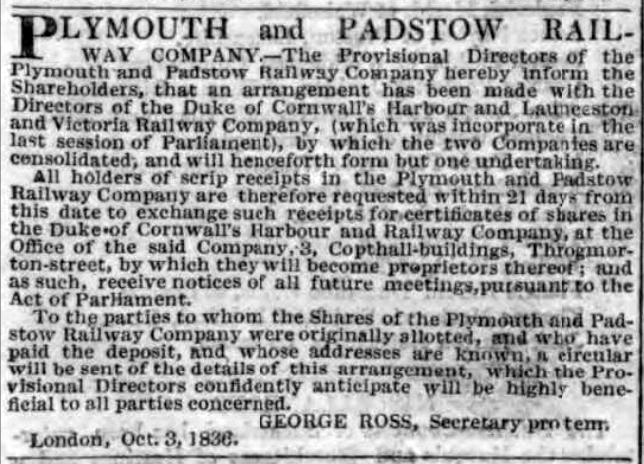
Quoting the ‘Railway Register’ again:
‘Duke of Cornwall’s Harbour and Launceston and Victoria Railway Company. At a meeting of the friends and promoters of this undertaking held pursuant to public advertisement at the Crown and Anchor Tavern Strand on Saturday the 5th of March 1836 to receive certain important communications and adopt resolutions thereon Captain Sir John Ross RN CB KSA KCS in the chair Read a letter from Sir Herbert Taylor intimating the King’s most gracious approbation of the harbour about to be constructed at Tremoutha Haven and his royal pleasure that it shall bear Majesty’s name as Duke of Cornwall of which his Majesty to be announced the patron Head a communication from his Royal Highness the Duke of graciously consenting to be named vice patron of the undertaking Read a letter from Sir John Conroy written by desire of her Highness the Duchess of Kent intimating the pleasure of her Highness that the town to be built near the said harbour and at termination of the intended railway shall be called Victoria that their Royal Highnesses the Duchess of Kent and Victoria after whom the said town is so to be named have graciously condescended to become patronesses thereof Read official letters from the Lords of the Admiralty and the brethren of the corporation of the Trinity house favourable to measures in contemplation and the chairman having briefly the objects of the meeting the following resolutions were unanimously Moved by Sir William Molesworth Bart MP for East Cornwall seconded by Sir Chas Lemon Bart MP for West Cornwall- I. That this meeting deeply lamenting the great loss of lives property which so frequently occurs on the dangerous north west of Devon and Cornwall considers that the construction of a harbour safety on that coast to which vessels might resort in tempestuous weather would be an object of great importance no less in a philanthropic than in a national and commercial point of view Moved by Sir William L S Trelawny Bart MP for East Cornwall seconded by E W W Pendarves Esq MP for West Cornwall. II. That this meeting having examined the charts and reports the engineers employed to survey that coast is of opinion that Tremoutha Haven in Cornwall where abundance of suitable materials for the construction of breakwaters and piers may easily be had admirably adapted for the formation of a harbour of refuge and no place on that coast appears better suited for the purpose whilst the great depth of water and capacity of the haven affords ample accommodation for more than 500 vessels of large burthen even for ships of war an 1 will admit of their entering it at all times of the tide Moved by the Right Hon Major Gen Sir H Hardinge M.P. for Launceston seconded by John Ramsbottom Esq MP for Windsor III That this meeting considers that in the event of such a harbour as proposed being determined upon the construction of a railway from thence to the nearest market town of Launceston being adopted in connection therewith whereby its benefits may be diffused over a large agricultural district would render the combined undertaking not only one of great public advantage but apparently a sure source of considerable private emolument to adventurers in the enterprise Moved by Vice Admiral Sir Edward Codrington Bart MP for Devonport seconded by George Fred Young Esq MP for Tynmouth-
IV. That this meeting duly appreciating the value and importance of the illustrious patronage which has been announced as willing to sanction this patriotic work and not doubting but that under such august auspices and with such humane as well as beneficial objects in view it will meet with universal approbation and support is of opinion that it is highly advisable a Company be forthwith established on liberal principles to carry the same into effect and that measures be taken to obtain the act of incorporation by following up the petition which has already been presented to the House of Commons Moved by John Wilks Esq MP for Boston seconded by William Beetham Esq.. V. That the building of a town proposed by permission to be called Victoria after her Royal Highness the Princess in a convenient situation near the intended harbour for the accommodation of inhabitants and visitors appears to this meeting a most desirable object and although it is not judged expedient that the funds of the Company should be employed therein yet as private individuals have signified their intention to invest their capital in that undertaking this meeting considers it highly deserving of every encouragement which the Company can consistently afford. VI. That this meeting having heard read the proposed prospectus of the said Company fully approves thereof and recommends that the following gentlemen be named to form a provisional committee to carry these resolutions into effect with power to add to their number and from that number or otherwise to choose directors to be named in the act of parliament. VII. That George Ross Esq the projector of this interesting enterprise and the founder of the proposed town by whose indefatigable exertions the measures have been so far advanced be requested to act as secretary to the undertaking. The chairman having vacated the chair and which being taken by William Beetham Esq the thanks of the meeting were unanimously voted to Capt Sir John Ross for the very able and satisfactory manner in which he filled the chair and for the zeal and talent displayed by him in forwarding the wishes and objects of the meeting .’
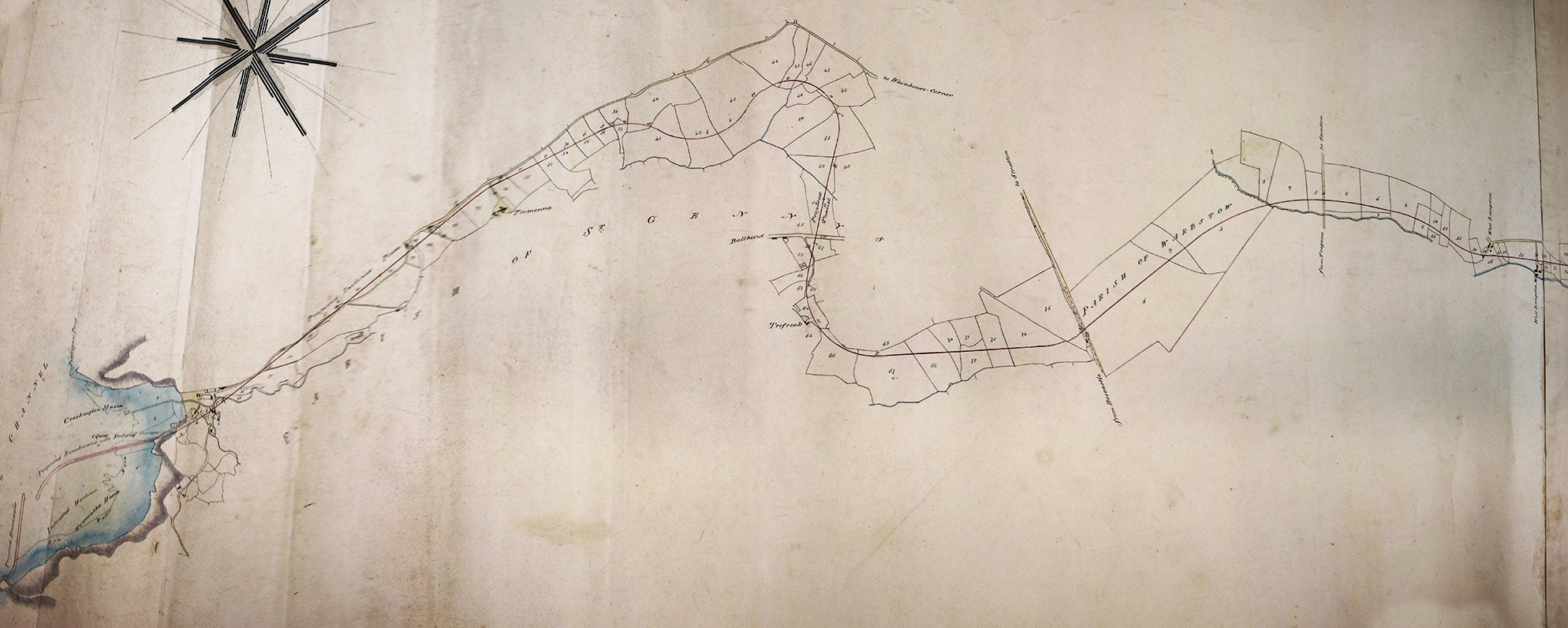
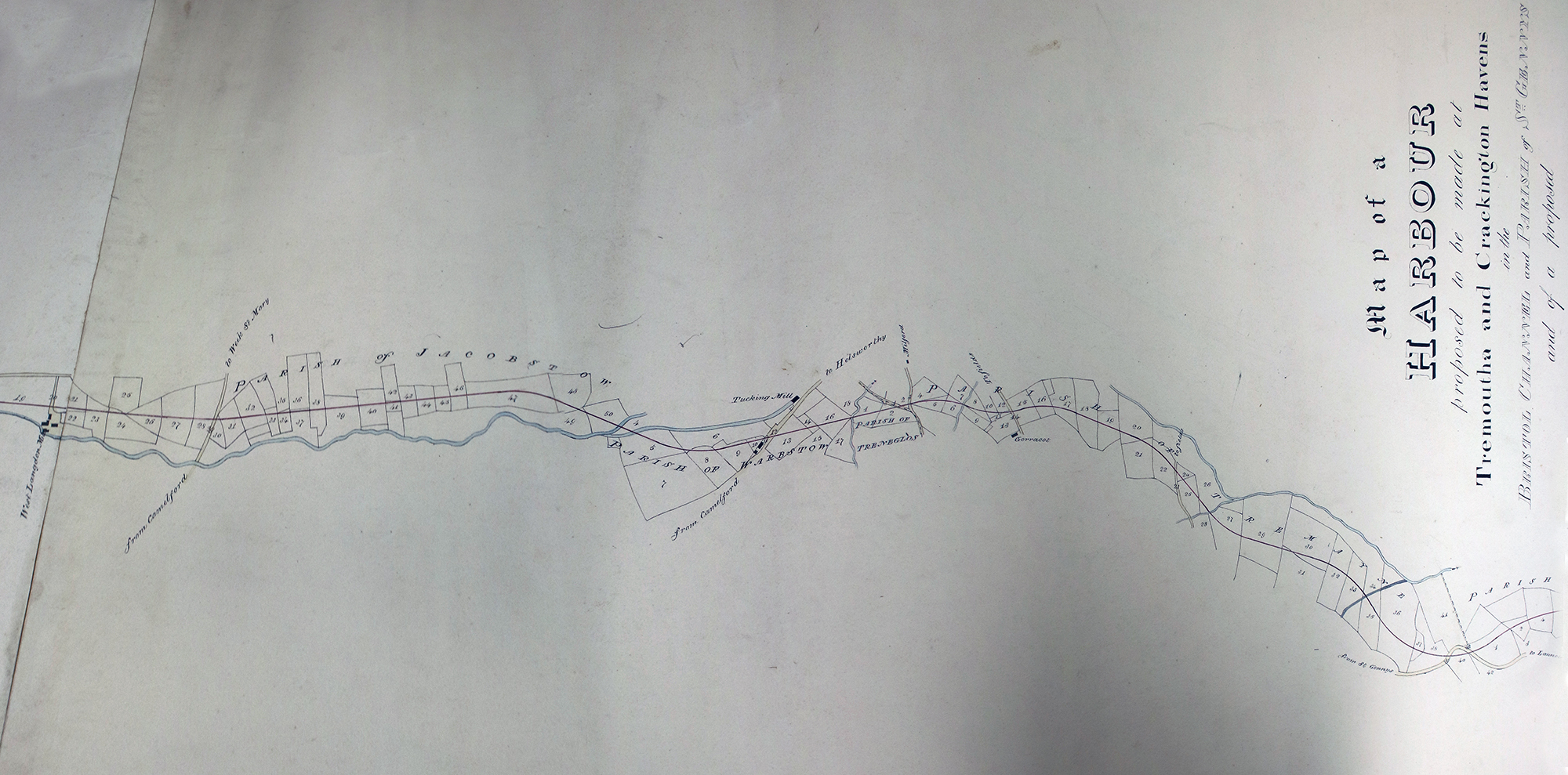
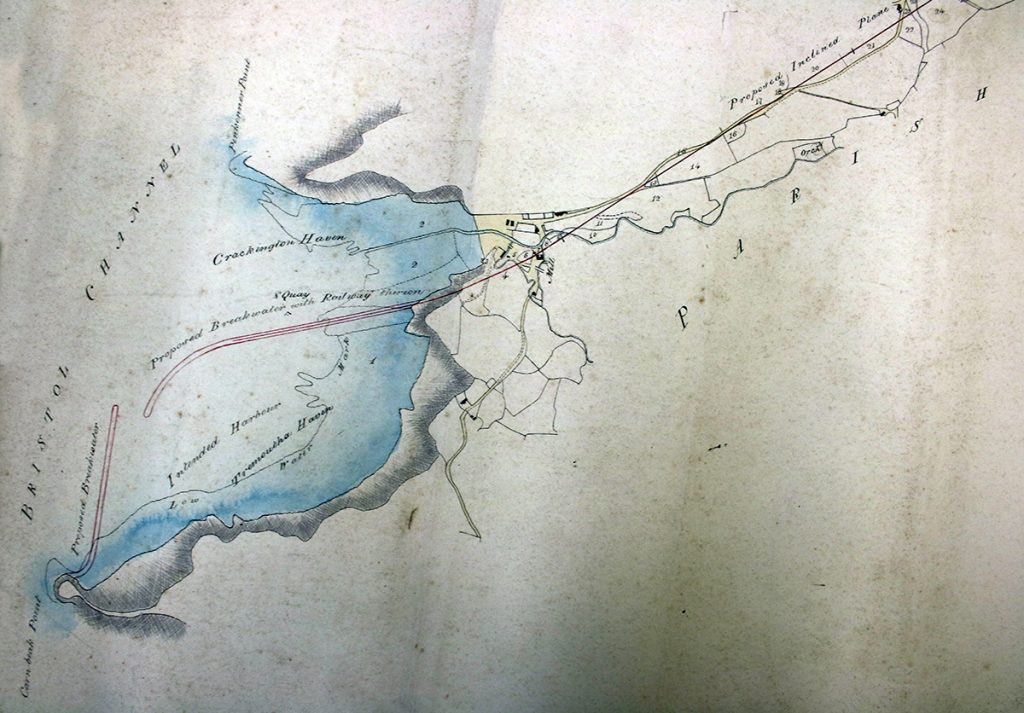
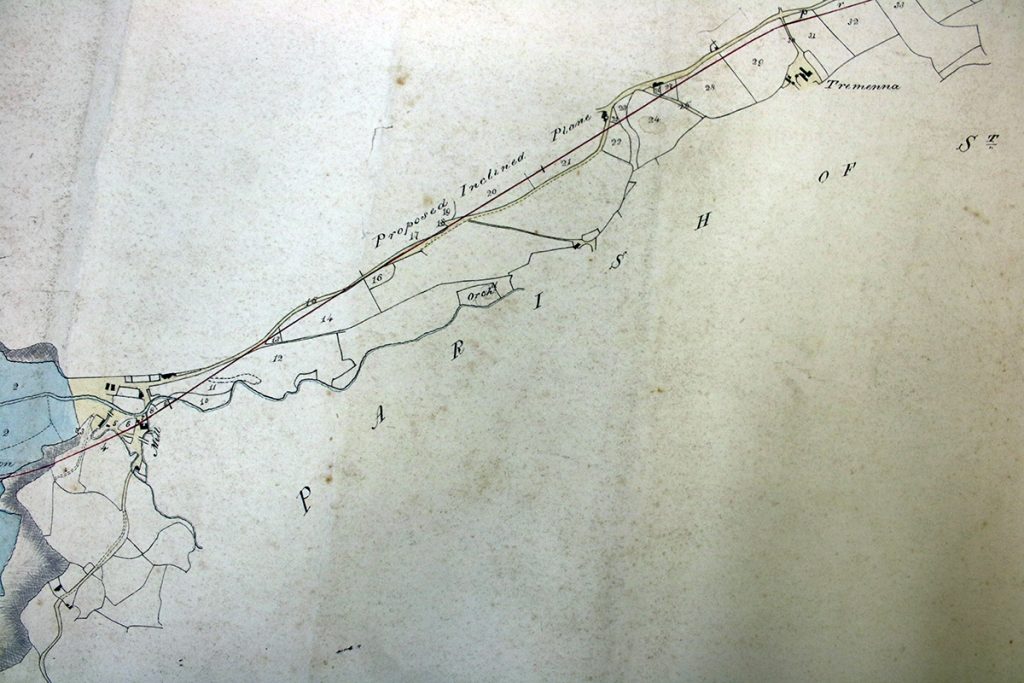
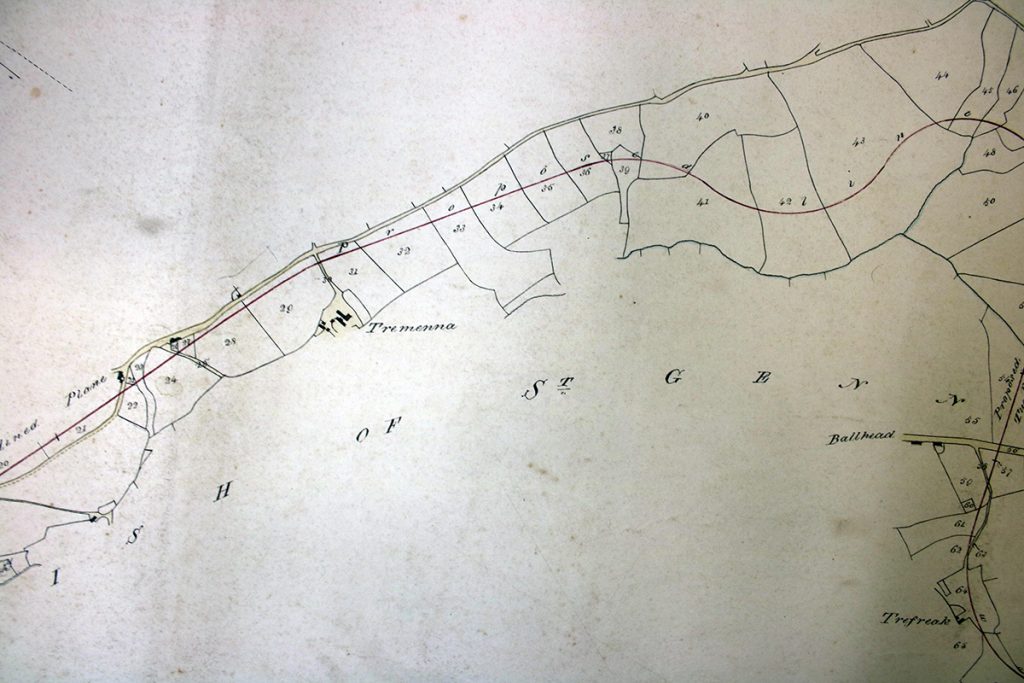
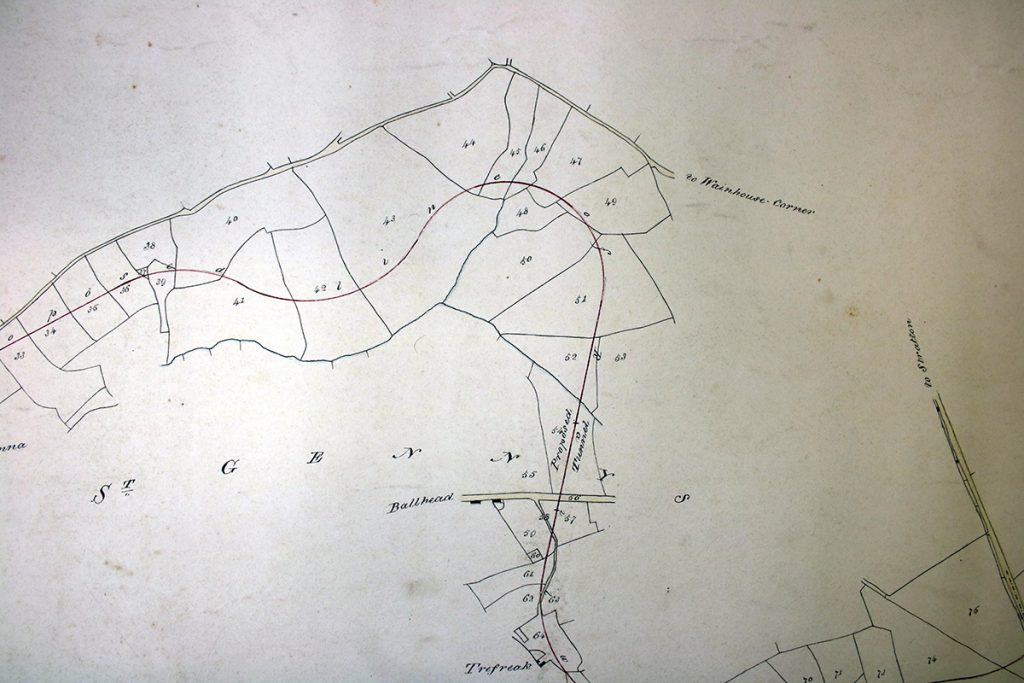
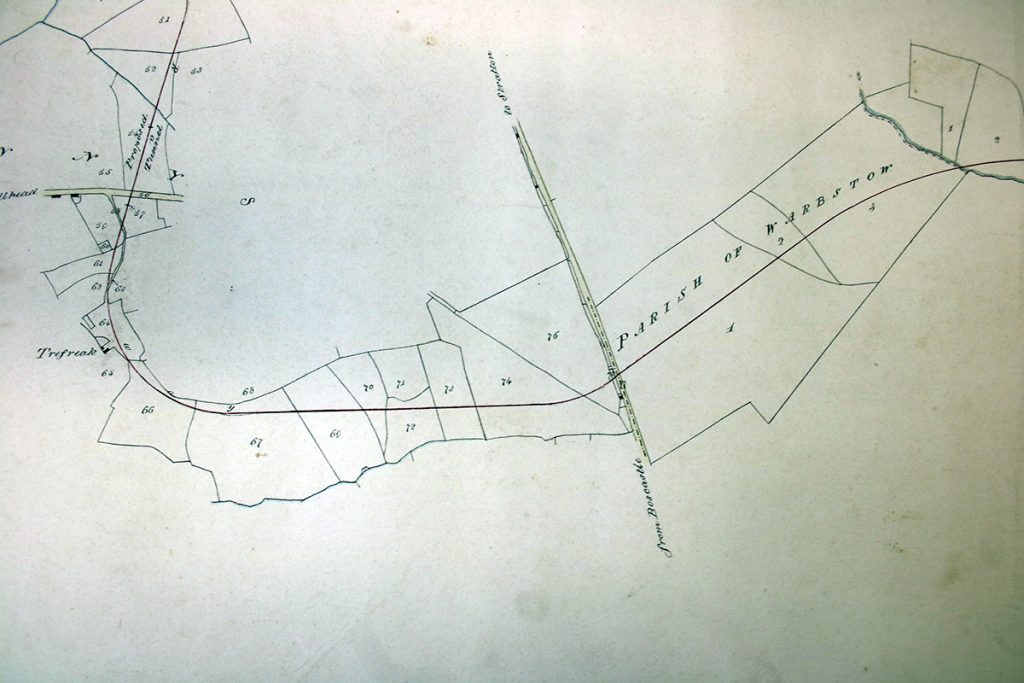
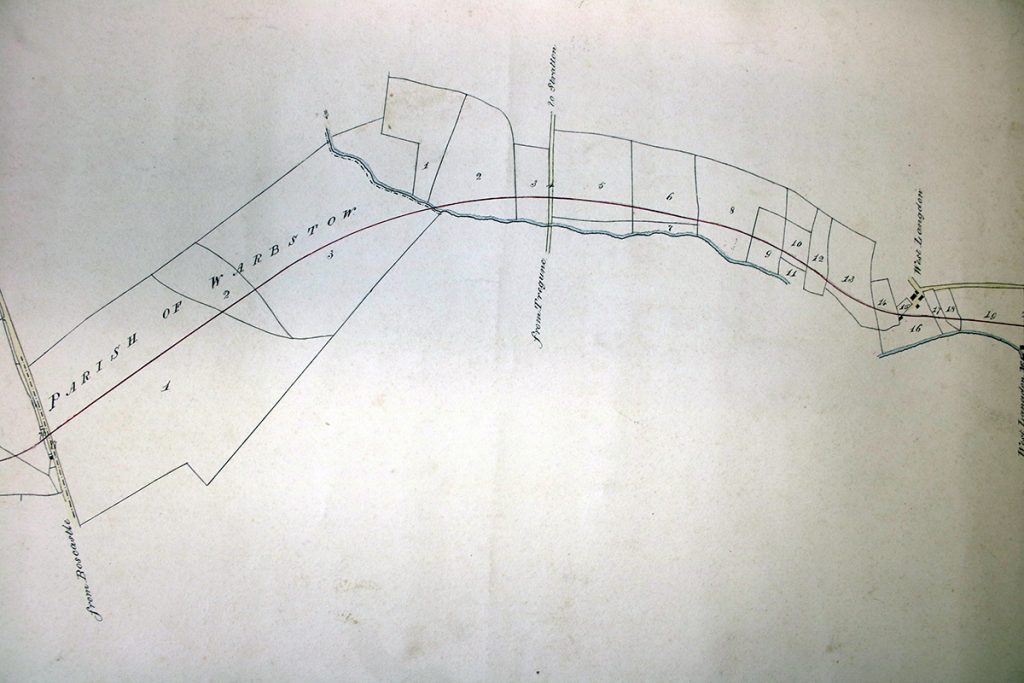
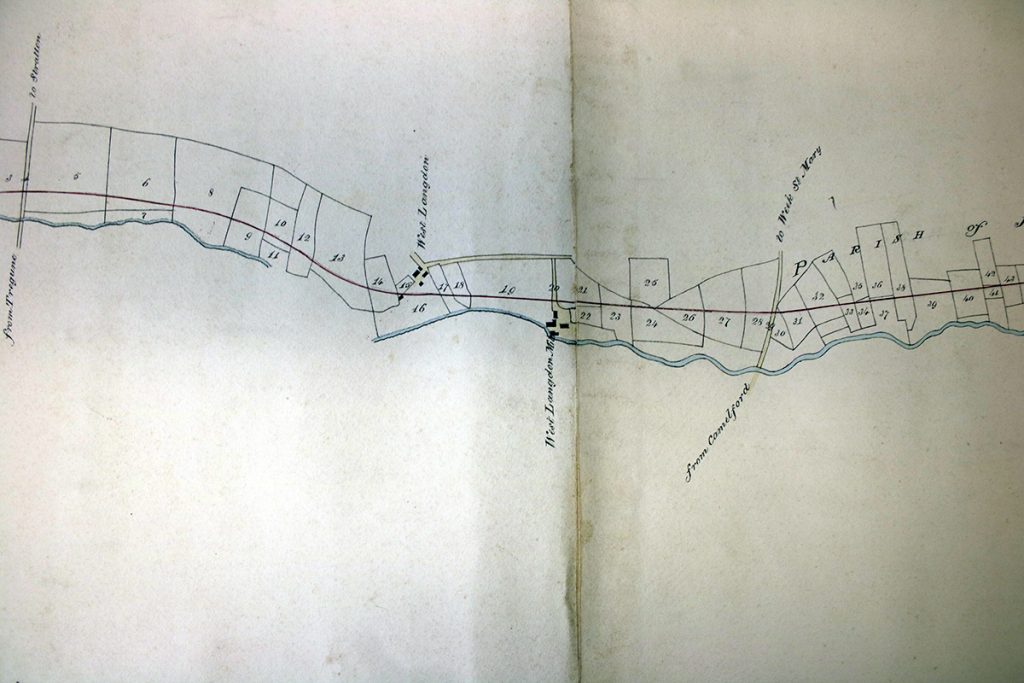
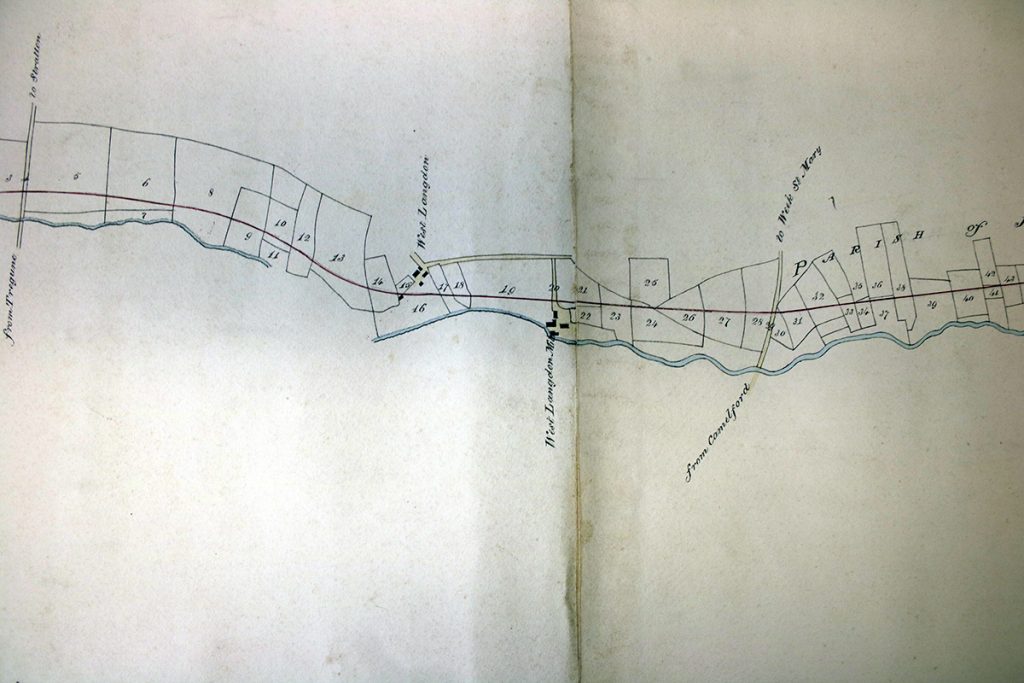
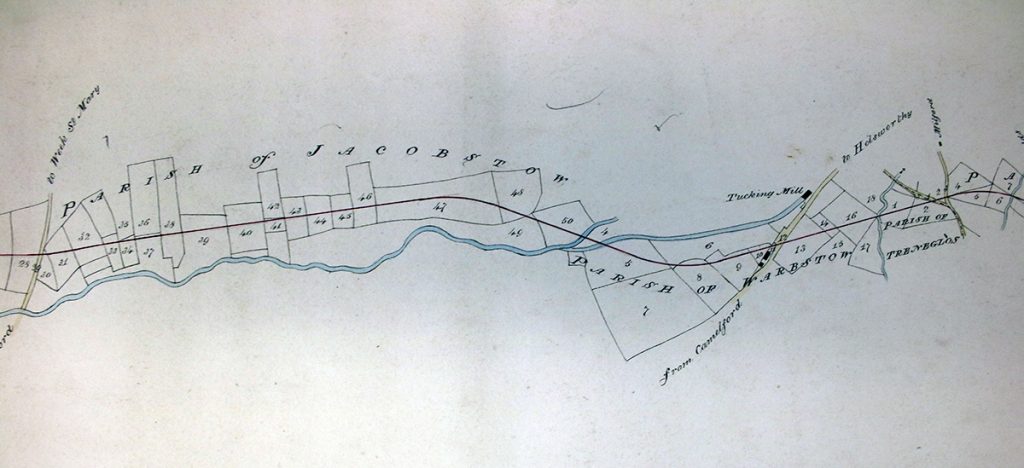
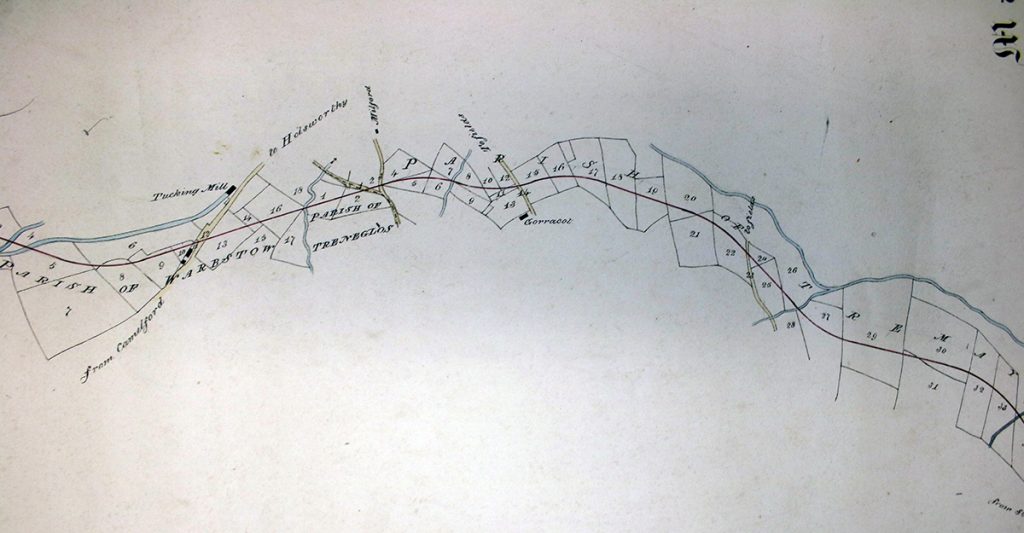
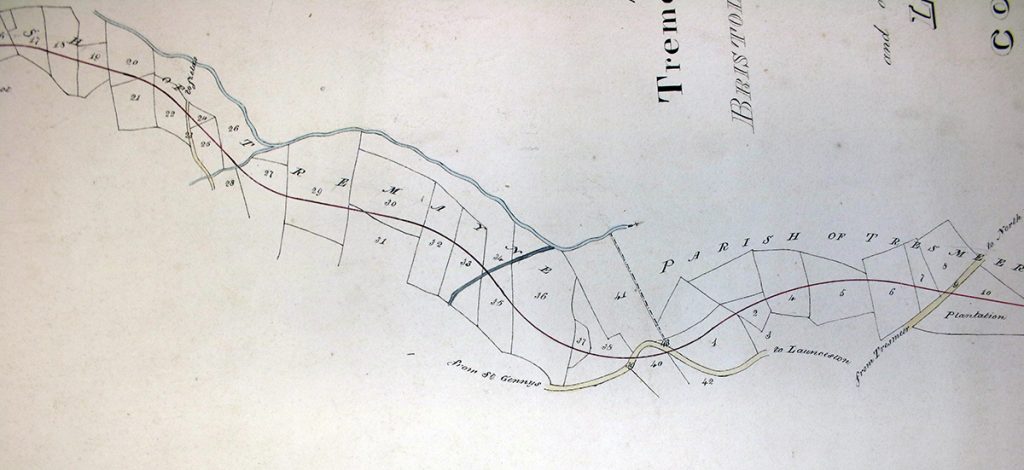
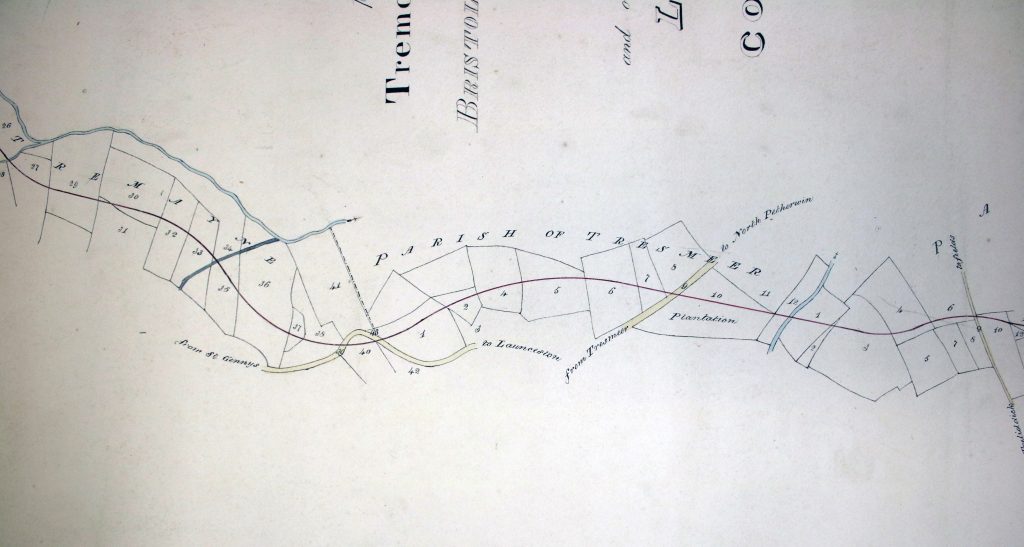
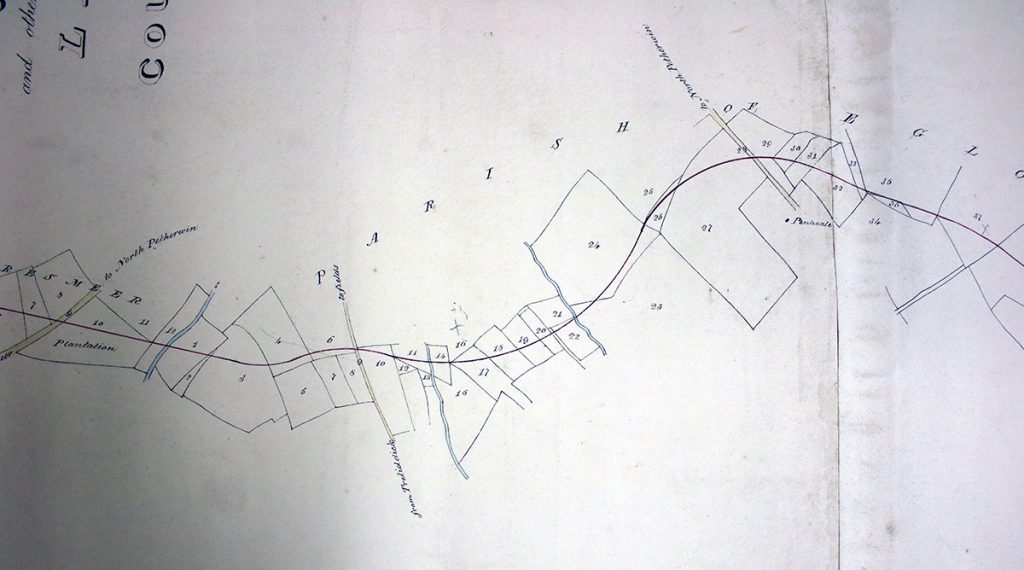
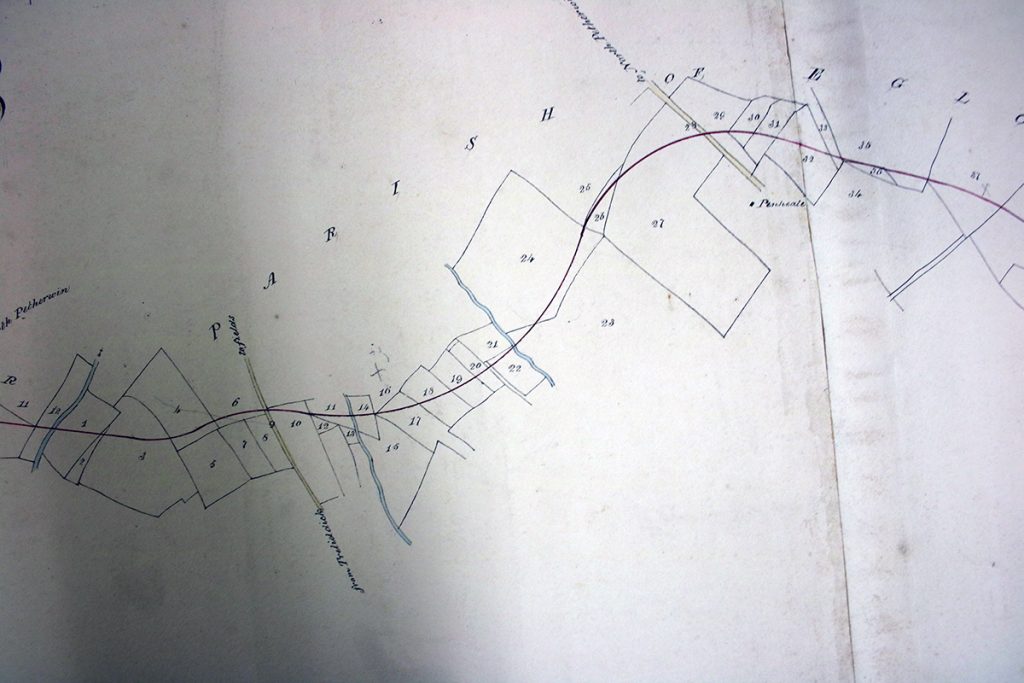
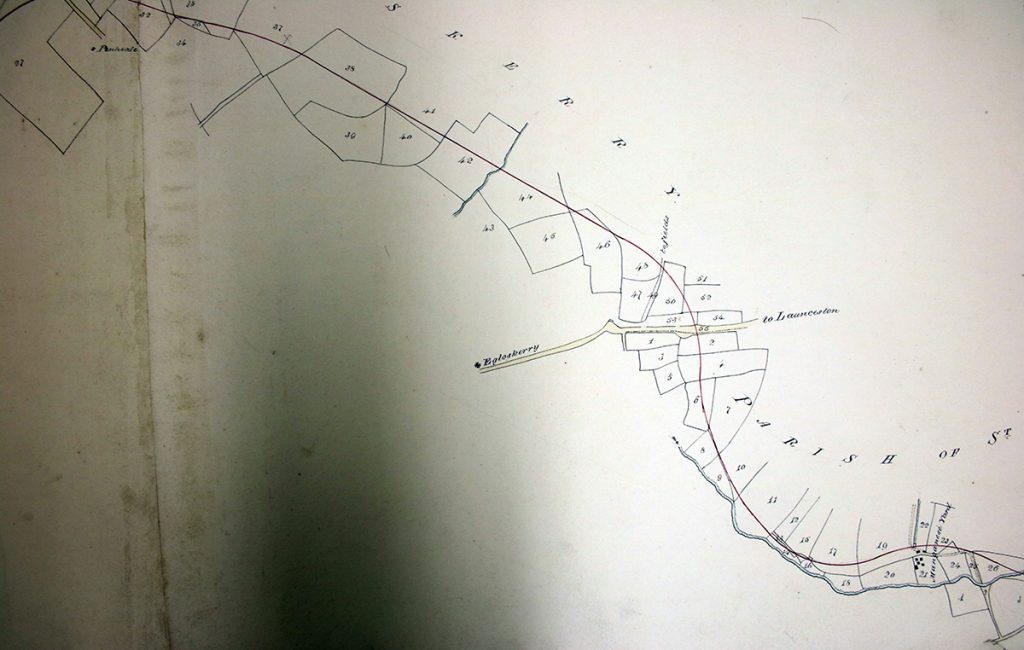
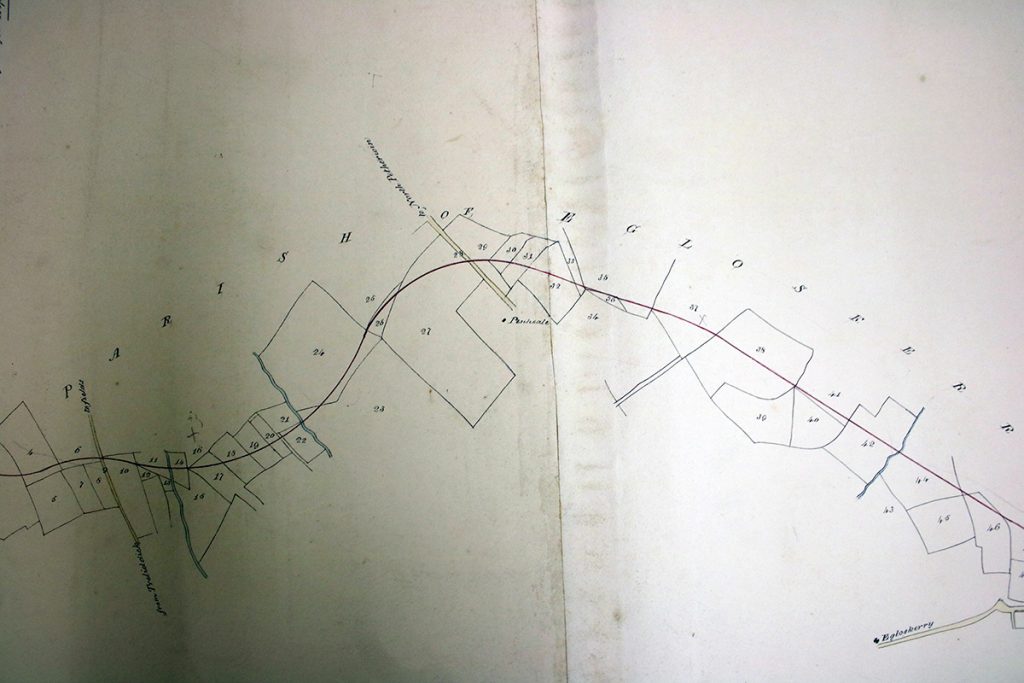
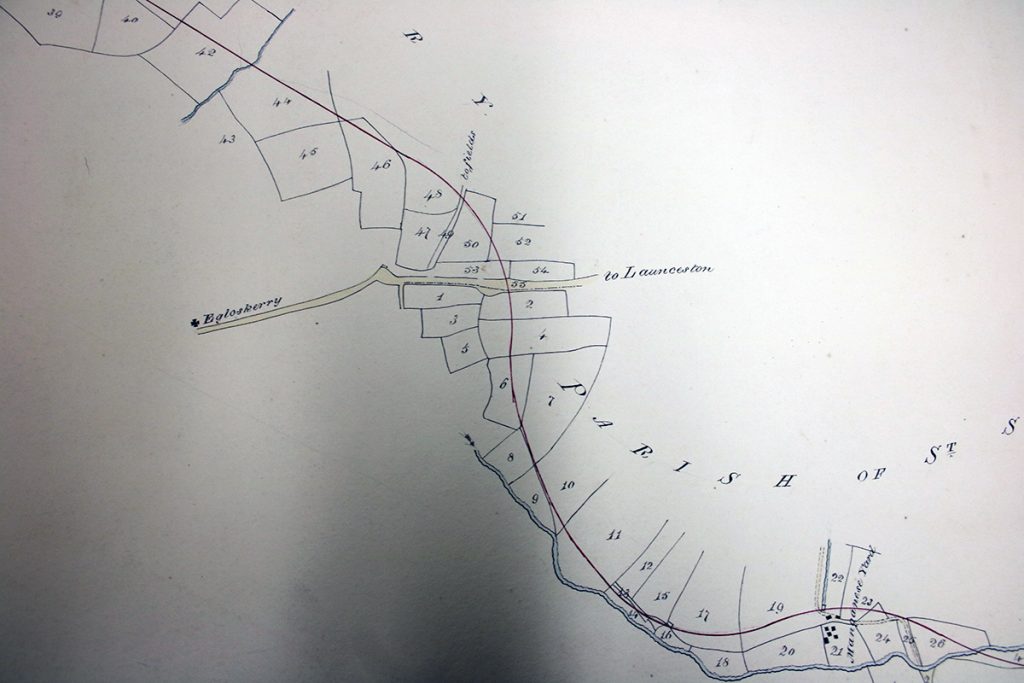
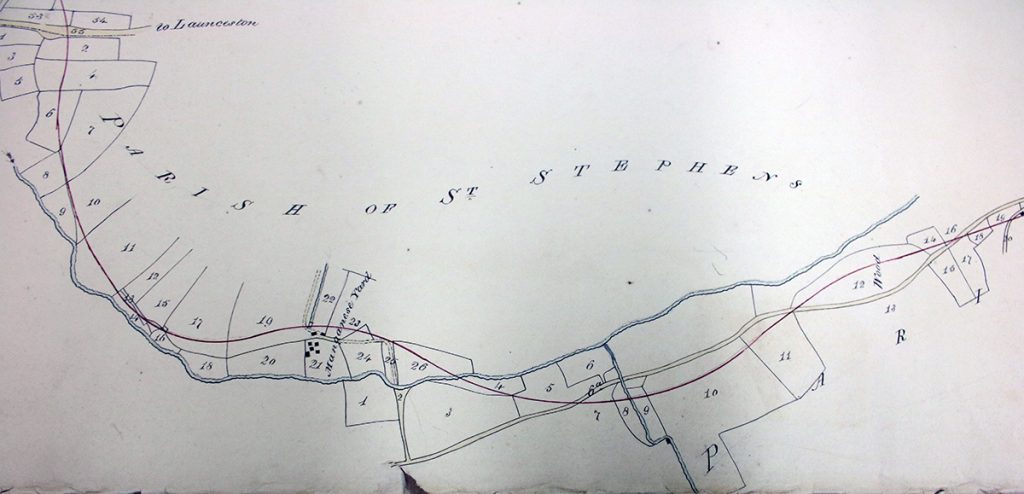
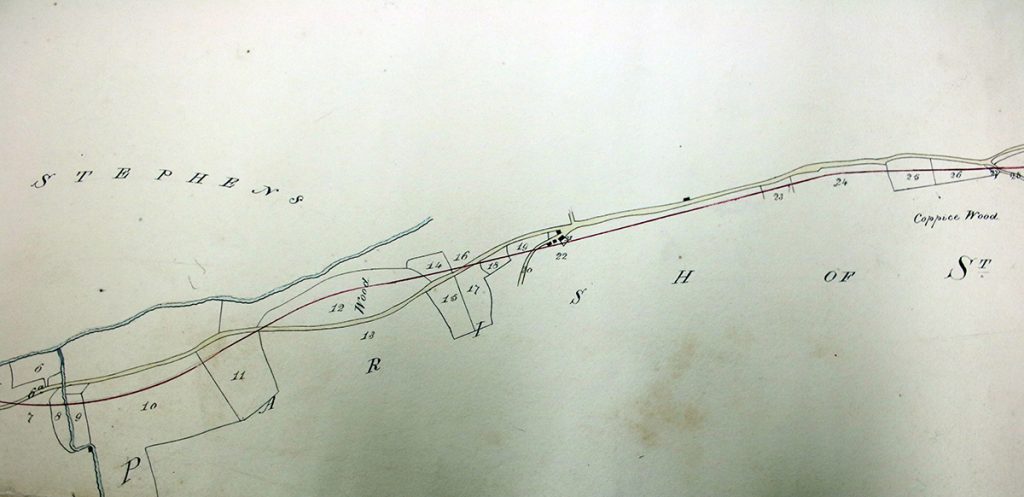
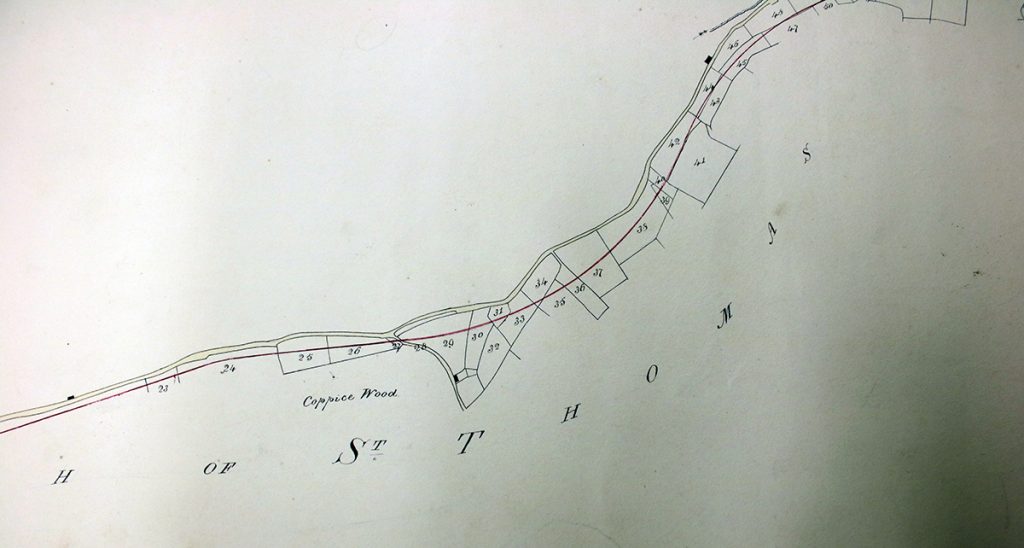
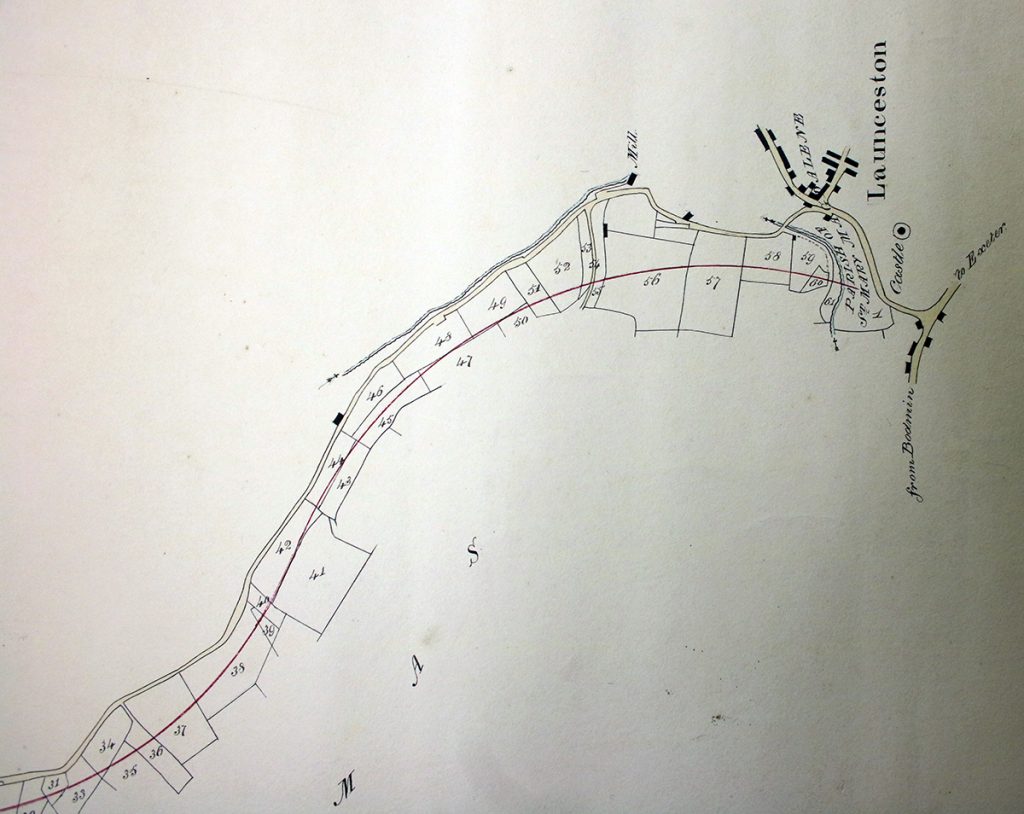
A detailed survey of the proposed route was carried out by Roger Hopkins and Son, and although well supported in the town, it soon became evident that it was one of the many celebrated ‘railway mania’ swindles of the time. This one in which the names of a number of eminent personages were fraudulently made use of and which after obtaining an act of parliament fell to the ground on the fraud being detected. ‘The Railway Times’ took a considerable part in the exposure of this nefarious scheme and an action for libel was brought against that paper by the secretary, Mr George Ross. The consequence was that the scheme never got off the ground and soon floundered and today Crackington remains the sweet little haven that it always had. The Company itself was not wound up until 1843 due to litigation with George Ross, but after this went to arbitration, it was found that he had no claim upon the company, and instead owed the sum of £460 to the company with which he was released from.
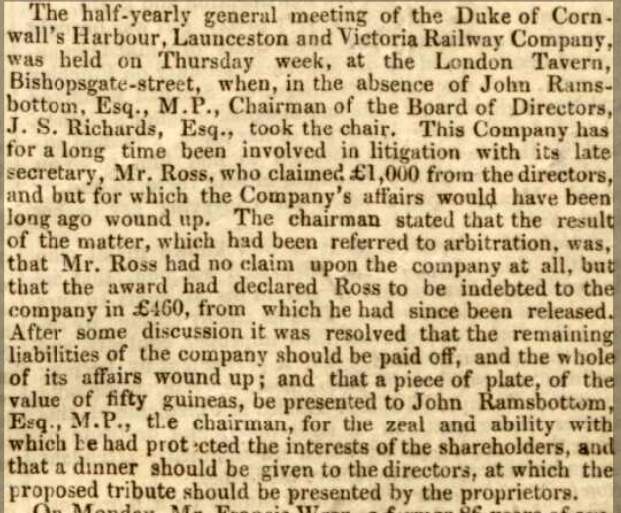


Visits: 109

